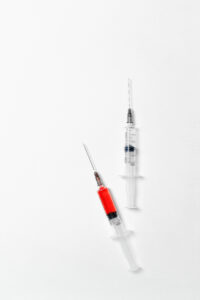Blog
Teens and Twenty-Somethings: Don’t Forget Your Vaccinations!
- July 15, 2020
- Posted by: Healthy Young NV
- Category: Prevention Teen Young Adult

Many are aware of the immunizations given during childhood, and many of these immunizations are even required and heavily encouraged upon entering certain milestones. From my own observations, vaccinations that are important for young adults are often overlooked and not as stressed, but are nonetheless equally important. As an individual who is considered a part of this age group, I am certainly not above this common thought. As a young adult, I find myself asking: What immunizations do I need? When do I need to take them? Why do I need to take them? When should I follow up on my childhood vaccinations? The Centers for Disease Control and Prevention (CDC) has outlined a recommended schedule of when adults over 19 years of age should get immunized against certain diseases. Assuming that our readers have up-to-date childhood immunizations (which you can double check with your immunization record and this resource), I will dive in to discuss a few important immunizations that are recommended for young adults.
Influenza (Flu) Vaccine
It is important to get vaccinated against influenza each year. Flu can be a very serious illness, no matter your age. Flu season generally begins each fall and ends in spring (VeryWellHealth), and during the flu season for 2019-2020, the CDC has estimated that there has been an average of 47 million flu illnesses and 24 thousand to 62 thousand flu deaths. This showcases the importance of the flu vaccine given each year, as this vaccine decreases the amount of influenza cases in the U.S. each year. It is recommended for individuals over the age of 6 months to get their flu vaccine every year, ideally early in the season – October or November. By vaccinating against seasonal flu, mild to severe illness, hospitalizations, and even death can be prevented (CDC).
Human Papillomavirus (HPV) Vaccine
HPV is the most common sexually transmitted infection – an estimated 80% of adults will contract it at some point in their lives (ASHA). HPV can cause cervical cancer in women, and vaccination is the best way in preventing HPV infection (MayoClinic). Moreover, HPV can cause other types of cancer, such as vaginal and vulvar cancer in women, and anal and oropharyngeal cancers in both men and women. The HPV vaccine is very effective at preventing HPV infection, which can in turn prevent all of these cancers. According to the CDC, if you start your HPV vaccine series before you turn 15, you will only need 2 doses of the vaccine to be fully protected. However, if you begin the series after you turn 15, you will need 3 doses to be fully protected against HPV. It is recommended that you receive your first dose of the HPV vaccine at 11-12 years old, as that is when your immune system responds the best (CDC).
Tetanus, Diphtheria, and Pertussis (Tdap) Vaccine
The Tdap vaccine is a childhood vaccine typically given at 11-12 years old (CDC). Tdap vaccination protects against three bacterial diseases: 1) tetanus (lockjaw), which causes painful muscle stiffness that stops muscles from working properly, including muscles that control breathing; 2) diphtheria, which is an infectious disease affecting the heart and respiratory system; and 3) pertussis, or whooping cough, which causes severe cough and breathing problems (CDC). It is important for young adults to remember that for this vaccine to be at its most efficient, booster shots every 10 years are recommended (CDC). In fact, I, myself, am soon due for that follow-up shot as a 22 year old.
Meningococcal Vaccines
Meningitis is an inflammation of the protective membranes covering the brain and spinal cord, and can often be fatal if left untreated. There are two important vaccines given to prevent meningococcal (meningitis) infections. The first one is the MenACWY vaccine, the first dose given at 11-12 years old and a booster given at 16 years old. This vaccine protects against 4 types of Meningitis. The other important Meningitis vaccine is Meningitis B, which is given at 16 years old.
Conclusion
As late teens and young adults, you may find yourself becoming more independent from your parents. New responsibilities arise and priorities change. High school students become college students, move out, and/or pursue employment. With these changes, you may lose track of what vaccines are important to maintain your health. Now that this blog has outlined the important immunizations for your age, it’s time to make a doctor’s appointment to get caught up on your vaccines!
This blog was written by Patricia, a member of High Sierra AHEC.
Resources:
The CDC’s Vaccine Information for Adults
The CDC’s Recommended Adult Immunization Schedule
TeensHealth
Vaccines.gov for Adults Ages 19 through 26

